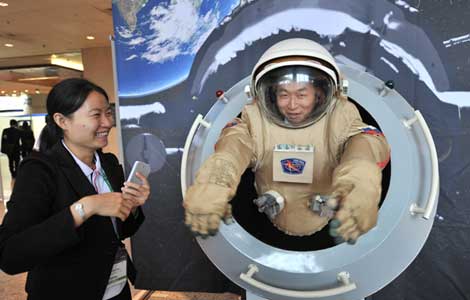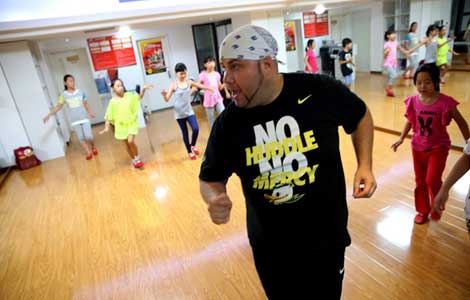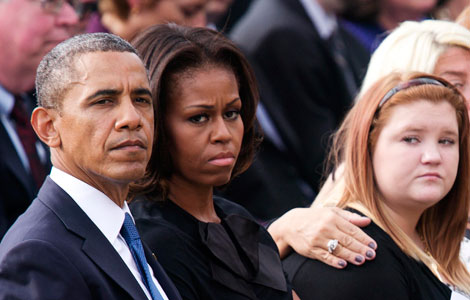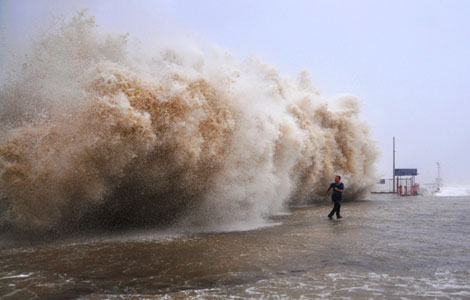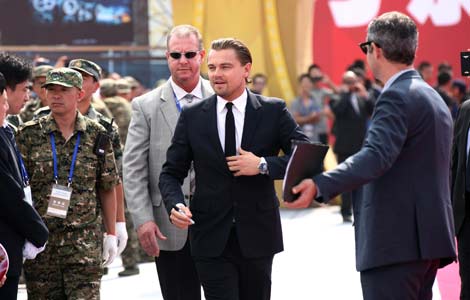Old soldiers receive badge of recognition
Updated: 2013-09-24 09:41
By Zhao Xu (China Daily)
|
||||||||
Fingerprint memorial
Walls of tempered glass have been erected in the square outside one of the museums. They carry the fingerprints of 4,000 World War II veterans, including 2,000 KMT soldiers.
"They fought together, the Communists and the KMT, and so they should be remembered together," Fan said.
One of the fingerprints belongs to You Guangcai, who joined the KMT army in 1938, a year after war broke out in China. He fought the Japanese on Chinese soil and in Burma, later renamed Myanmar.
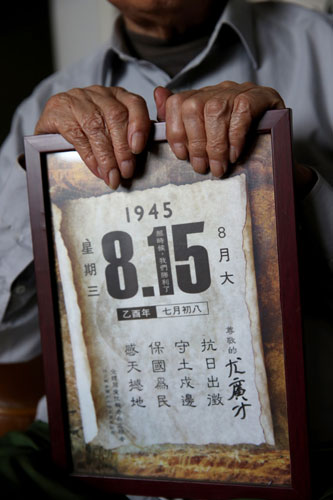 |
|
You Guangcai holds a commemorative certificate presented by volunteers, which dates to the Japanese surrender. Photos by Jiang Dong / China Daily |
Living quietly in a one-room apartment in Beijing, the 94-year-old has no wartime memorabilia, except for the fairly large number of English words he learned from US soldiers in Burma and the deep scar that runs across the right side of his stomach.
After the war, You's KMT background resulted in him being imprisoned several times before being sent to do hard labor in a remote farming village in his native Shandong province.
"I burned everything, including my military papers and the bravery award testifying to my courage during the war. Those memories remained sealed in the back of my mind," he said.
And there they stayed. When Xue Gang, a Beijing-based volunteer, first knocked on You's door two years ago, he was stunned by the vividness with which the veteran recalled every detail of his army experiences, even down to the mask he wore to fend off the vicious mosquitoes in the forests of Burma.
"His memory may have been gathering dust like a long-hidden mirror, but once someone took it out and wiped it clean, it shone like crystal," Xue said. "Believe me, after whatever they went through, these old soldiers will never choose to forget who they are."
Mei Qing knows all about that. Not long after the volunteer's visit, her father's memory began to deteriorate. Sometimes he even fails to recognize close family members.
"But whenever I mention his battalion number, or bring up the names of those he fought alongside, he looks at me, eyes sparkling, and nods feverishly," Mei said. "Even if his world descends into an unrecognizable swirl, he'll still be clinging to those glorious bygone days."
The volunteers paid Mei's father another visit on Aug 15, the anniversary of the Japanese surrender.
"A letter was read to him, in which the volunteers thanked my dad for 'saving the nation at its most critical moment'," Mei said. "Back in 2009, dad suffered a severe stroke, which left him largely unable to move or speak. When he listened to the letter being read, his face contorted and his lips trembled. We all thought he was about to cry out loud."
But the elderly man, who as a battlefield surgeon donated blood to the wounded almost once a week, just wept silently.
"You think we are exorcising these old soldiers of their post-war traumas and offering solace to aging souls?" asked Sun, as he reflected on his efforts. "No. We are simply redeeming ourselves from the huge mistake we committed against those to whom we are forever indebted.
"Every day they are denied that medal, it brings shame on every single one of us who lives in this country, breathes free air and calls him or herself Chinese."
Most Viewed
Editor's Picks
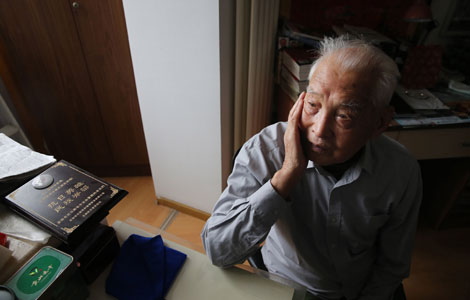
|
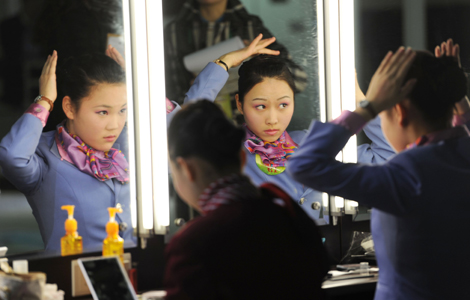
|

|

|

|

|
Today's Top News
China announces pricing policy for fuel upgrade
Microsoft to set up Chinese joint venture
China to increase rare earth purchase
Maduro aims to build trade plan with China
Sino-US college venture focuses on public health
Shanghai regulates govt-funded overseas training
Hong Kong kungfu drama to compete for Oscar
China to help deal with chemical weapons
US Weekly

|

|
